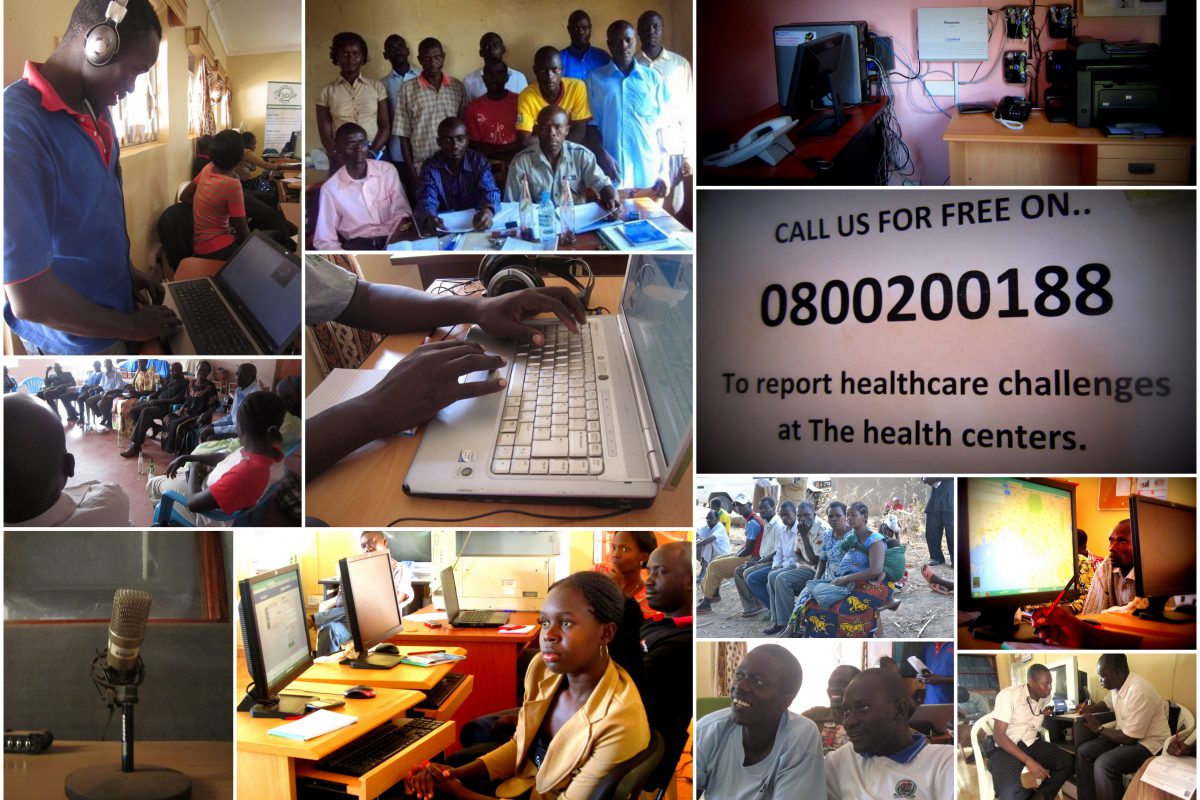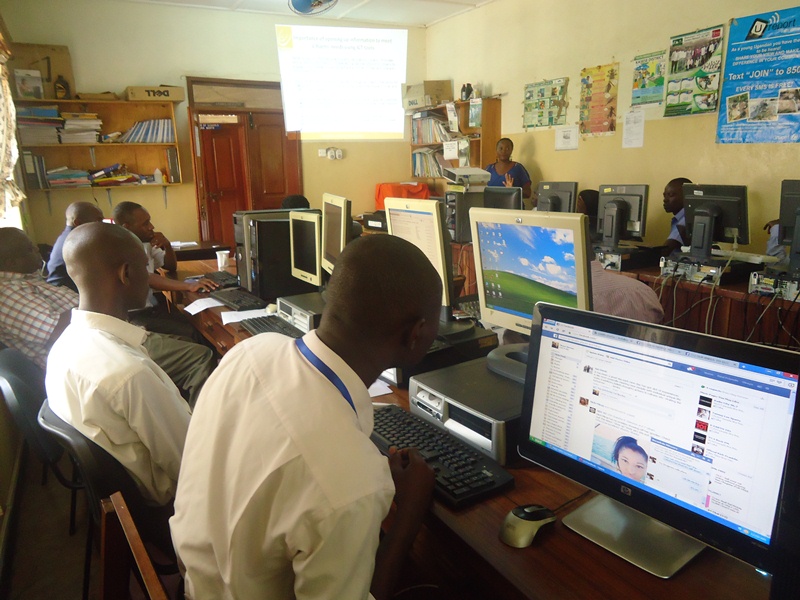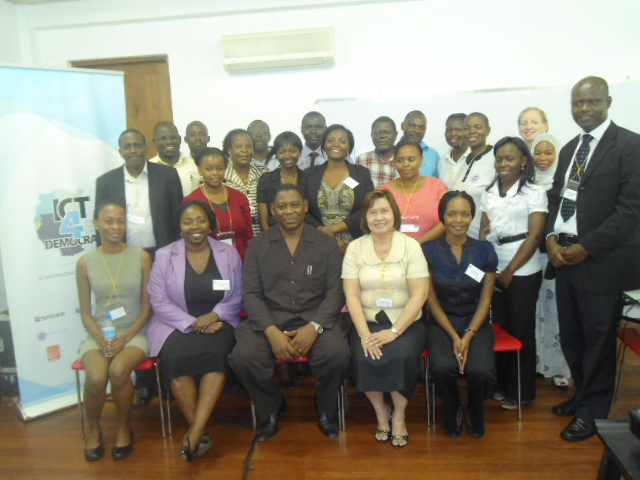Established in 2011, ICT4Democracy in East Africa is a network of organisations working to promote democracy and human rights through Information and Communication Technologies (ICTs) in Kenya, Uganda and Tanzania. Across the three countries, partners are leveraging on mobile short message service (SMS), toll free call centre, FM radio, social media, crowd sourcing platforms and direct community engagement to implement projects that tackle issues such as corruption, service delivery, respect for human rights, freedom of expression and access to information.
The projects are driven by the shared vision of the immense potential that ICTs have in increasing citizens’ participation in decision-making processes and strengthening democratisation.
The partner organisations are: the Collaboration on International ICT Policy for East and Southern Africa (CIPESA), Commission for Human Rights and Good Governance (CHRAGG), iHub Research, Kenya Human Rights Commission (KHRC), Toro Development Network, Transparency International Uganda and Women of Uganda Network (WOUGNET).
The network is supported by the Swedish International Development Cooperation Agency (Sida) and the Swedish Program for ICT in Developing Regions (Spider). CIPESA is the network regional coordinator.
Read more about the network in the profile publication here.
Local leaders in Kasese District Trained in e-Governance
This month, the Collaboration on International ICT Policy in East and Southern Africa (CIPESA) and the E-Society Resource Centre Kasese trained local leaders in Kasese district in the use of ICTs for improved governance and service delivery. During the March 20-21 2014 workshop, local leaders of the western Uganda district were also trained in using ICTs for information sharing and promoting citizen participation.
Speaking at the workshop, District Information Officer John Thawite urged local leaders to break away from the culture of secrecy and work in accordance with the 2005 Uganda Access to Information Act. “Meaningful participation in democratic processes requires informed participants hence the need for increased access to information,” he said.
However, Mr. Thawite noted some challenges to better access to information: poor facilitation for information officers, lack of ICT tools to process information requests, the Official Secrets Act of 1964 which bars public servants from releasing certain information, and poor coordination of information systems between departments.
During introductory sessions, participants were introduced to the basic elements of computer use, the internet and information security. Later, they were introduced to the concept of e-governance and its role in improving service delivery. The training included an interaction with the district e-government tools such as the district portal (www.kasese.go.ug), district discussion group (https://dgroups.org/iicd/kasese), E-library for district e-resources (https://elibrary.kasese.go.ug) and the district news portal (https://kasesenews.blogspot.com/).
The workshop also sought to enhance the leaders’ capability to engage with citizens through social media, and illustrated how this engagement could contribute to improved services delivery. According to Alexa.com, Facebook, Twitter, blog post and youtube are among the top ten accessed websites in Uganda and their potential in catalysing citizen participation in governance was emphasised.
Leaders were further encouraged to use the Rwenzururu facebook group (https://www.facebook.com/groups/nokasesesplit/) created in 2012 by community members in Kasese during a CIPESA citizen journalism training to discuss prevailing issues in the region..
Participants welcomed the training with one saying that he would henceforth be able to get access more information about various operations of the government through the various e-governance platforms shared. Another participant asked the e-society Resource Centre to work with heads of departments so that they always send their budgets, minutes of meetings, work plans and other communication to the e-platforms.
CIPESA has since 2011 spearheaded the iParticipate Uganda project. Through grassroots based ICT access centres in Eastern, Western and Northern Uganda, CIPESA creates awareness and builds the capacity and skills of citizens, media and local government to leverage ICTs to catalyse civic participation, democracy monitoring and access to information in Uganda. The E-society Resource Center Kasese is CIPESA’s western region partner. The centre provides support, promotes ICT literacy and the use of ICT for transparency in the Kasese local government.
Article complied by Mr. Samuel Mumbere – E-Society Resource Centre Kasese and Ms. Lillian Nalwoga – CIPESA
ICT4Democracy in East AFrica Workshop in Dar es Salaam
 The ICT4Democracy East Africa Network – of which CIPESA is a member – is currently holding a two day workshop in Dar es Salaam, Tanzania. This workshop aims to promote the Network’s activities with partners showcasing the progress of their work to improve democratisation in the region.
The ICT4Democracy East Africa Network – of which CIPESA is a member – is currently holding a two day workshop in Dar es Salaam, Tanzania. This workshop aims to promote the Network’s activities with partners showcasing the progress of their work to improve democratisation in the region.
The event was officially opened by Eng. Dr. Zaipuna Yonah, the Director of ICT, Ministry of Science and Technology in Tanzania. In his opening address, Eng. Dr. Zaipuna thanked the government of Sweden through (SPIDER) The Swedish Program for ICT in Developing Regions and SIDA (Swedish International Development Cooperation Agency) for supporting the development of ICTs in the developing world and indicated that the work of the ICT4Democracy in East Africa network is already impacting the lives of citizens living in the region.
Eng. Dr. Zaipuna also highlighted the work the Tanzanian government was doing in developing ICT infrastructure within the country and extending it to neighbouring countries. He urged the members of the network to continue sharing the progress of their initiatives saying that “Accountability should not only be in what we read and write, democracy is more about translating the intentions into realities.”
To view the complete photo gallery of the ongoing workshop visit this link.
The presentations from the workshop will be uploaded at www.ict4democracy.org



